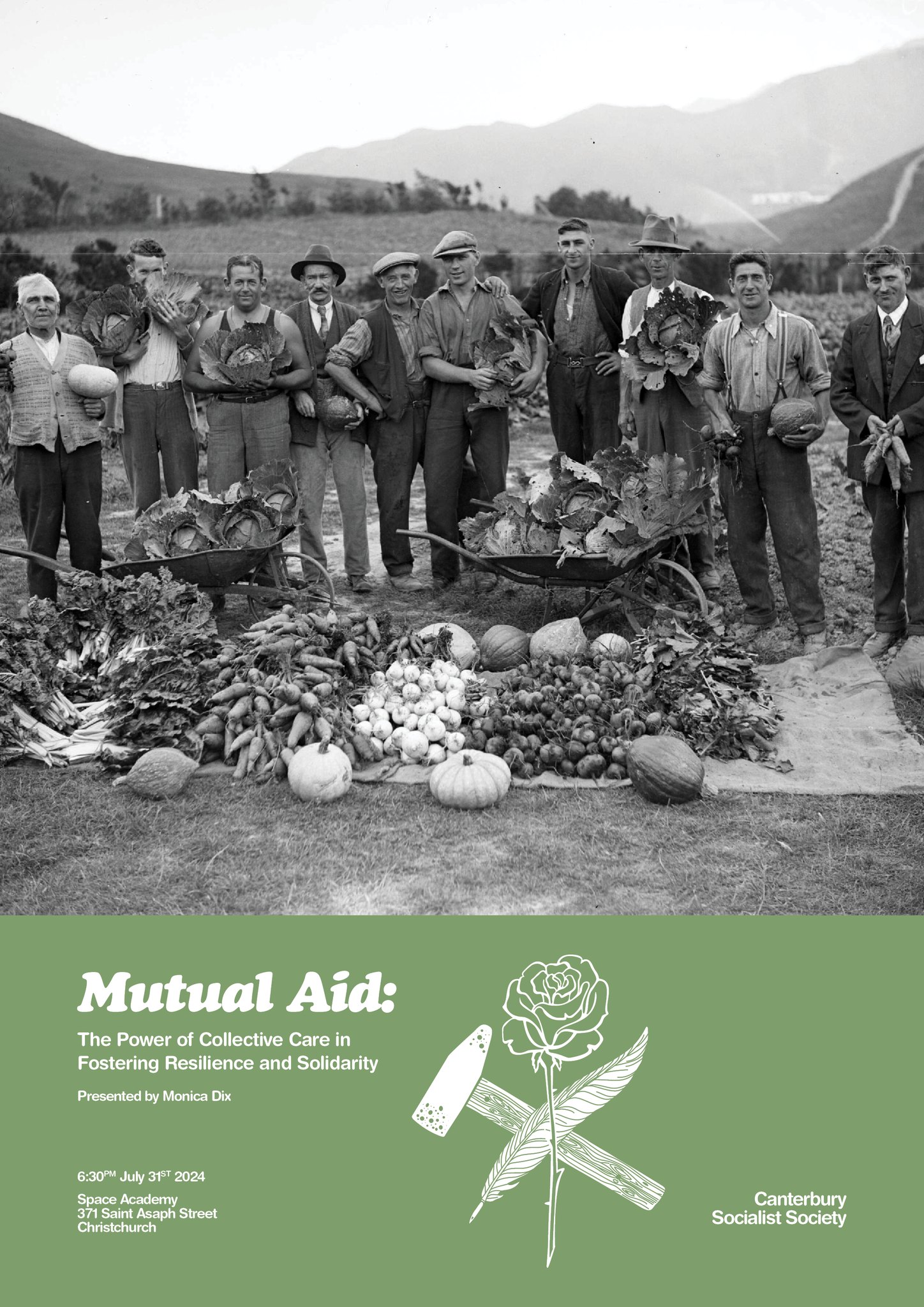
“The mutual-aid tendency in man has so remote an origin, and is so deeply interwoven with all the past evolution of the human race, that it has been maintained by mankind up to the present time, notwithstanding all vicissitudes of history.”
― Peter Kropotkin
—————————————————————
Through mutual aid, we acknowledge the ways that governments have failed our community, organising to meet our needs and keep ourselves safe as a collective. Popularised by Peter Kropotkin in 1902, mutual aid has recently been through a renaissance led by Dean Spade’s publication of Mutual Aid: Building Solidarity During this Crisis (and the next) in conjunction with the 2020 COVID-19 pandemic. In cities like Chicago in the United States, organisers put out the call to develop neighbourhood-based mutual aid networks to meet grocery, medication, and other financial needs. These networks have evolved substantially over the last four years to continue to address COVID and other emerging crises, showing both the scope of crises we face in the 21st century and the adaptability of anarchist organising frameworks. This talk will articulate what mutual aid is and how it can meet community needs during crisis conditions of slow and fast disaster, and walk through specifically how it can be operationalised with examples and stories from Dix’s experience organizing in Chicago, in particular the Edgewater Mutual Aid Network. Subsequent discussion will focus not only on the concepts from the talk but brainstorming opportunities to implement mutual aid projects locally in Otautahi Christchurch.
—————————————————————
Monica Dix (she/they) is a member of CSS, from the Midwestern United States, currently studying Disaster Risk and Resilience at the University of Canterbury. After moving to Chicago in 2020, they have been intensively involved with their local mutual aid network, focusing on capacity building and political education around mutual aid projects to meet the needs of community members while building a better future. She draws inspiration from her experiences in journalism, union organising, cooperatives, local government, disaster risk and resilience, the queer community, and midwestern culture.
― Peter Kropotkin
—————————————————————
Through mutual aid, we acknowledge the ways that governments have failed our community, organising to meet our needs and keep ourselves safe as a collective. Popularised by Peter Kropotkin in 1902, mutual aid has recently been through a renaissance led by Dean Spade’s publication of Mutual Aid: Building Solidarity During this Crisis (and the next) in conjunction with the 2020 COVID-19 pandemic. In cities like Chicago in the United States, organisers put out the call to develop neighbourhood-based mutual aid networks to meet grocery, medication, and other financial needs. These networks have evolved substantially over the last four years to continue to address COVID and other emerging crises, showing both the scope of crises we face in the 21st century and the adaptability of anarchist organising frameworks. This talk will articulate what mutual aid is and how it can meet community needs during crisis conditions of slow and fast disaster, and walk through specifically how it can be operationalised with examples and stories from Dix’s experience organizing in Chicago, in particular the Edgewater Mutual Aid Network. Subsequent discussion will focus not only on the concepts from the talk but brainstorming opportunities to implement mutual aid projects locally in Otautahi Christchurch.
—————————————————————
Monica Dix (she/they) is a member of CSS, from the Midwestern United States, currently studying Disaster Risk and Resilience at the University of Canterbury. After moving to Chicago in 2020, they have been intensively involved with their local mutual aid network, focusing on capacity building and political education around mutual aid projects to meet the needs of community members while building a better future. She draws inspiration from her experiences in journalism, union organising, cooperatives, local government, disaster risk and resilience, the queer community, and midwestern culture.
All welcome, free to attend. Doors from 6.30pm for a 7pm start.
Details
Starts On
July 31, 2024 - 6:30 pm
Ends On
8:30 pm
Event Categories
Canterbury, Events, Public Lecture
Event Tags
Organizers
Venue